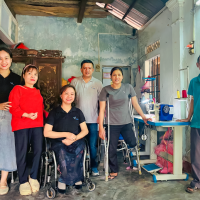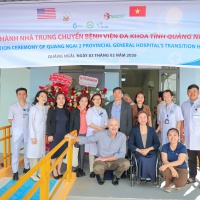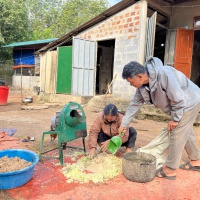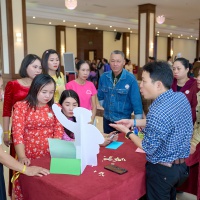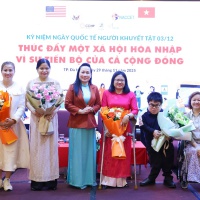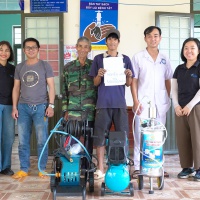In 2 days, November 25-26, 2022, the ACDC in collaboration with the Department of Labor - Invalids and Social Affairs of Kon Tum province organized the activity "Supporting accessibility tools for people with disabilities". The activity aims to improve independent living as well as support tools to help people with disabilities easily access and reduce dependence caused by disability.
The consulting team has the participation of project staff and 2 members in each ward - one of the groups that have participated in the Training of Trainers on independent living and peer counselling. Households of people with disabilities living in Duy Tan and Thong Nhat wards, Kon Tum City are visited by consultants to monitor, and evaluate the condition there as well as enthusiastically guide and support their use of accessibility tools. With the knowledge gained from the training course of trainers and experience in home counselling for households with disabilities in the first time, the consulting team has developed the knowledge and skills needed to provide effective counselling on independent living; talk and share useful information and closely connect with households of persons with disabilities in the locality.
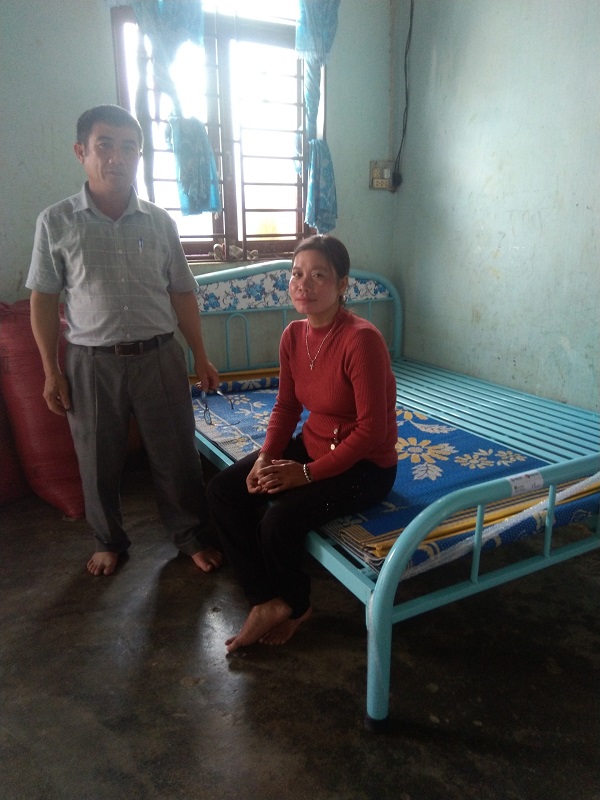
In the district, 20 households of persons with disabilities installed handrails in their houses; supported with several items such as a shower chair, a cupboard, a bed, a drying frame... The living environment adjustments and items are all aimed at creating the best conditions for persons with disabilities to be able to live independently.
In addition, during this trip, the households were carefully watched by the consulting team, observed the living conditions according to each person's disability status, and gave more appropriate suggestions and advice to continually adjusting the arrangement of items in the house by themselves, the family.

The consulting team checked and helped with the utensils at the beneficiary's home
Households of persons with disabilities are open to receiving suggestions to improve a more inclusive and optimistic living attitude and commit to adjusting household items to ensure easy access for persons with disabilities and their families.
Some shares of the beneficiaries in the project:
Mr A Yuong – from Thong Nhat Ward - who had accessibility tools installed joyfully shared: "The handrail installed right on the stairs feels very safe and comfortable, much easier than usual. It is also installed in the toilet, so it is easy to sit down and stand up. I feel a lot better. Thank you all very much.”
Mr A Huy - Thong Nhat Ward also expressed his gratitude and joy: “Every time I sleep on the ground, I have a much better bed, no more cold or body aches. Thank you all very much.”
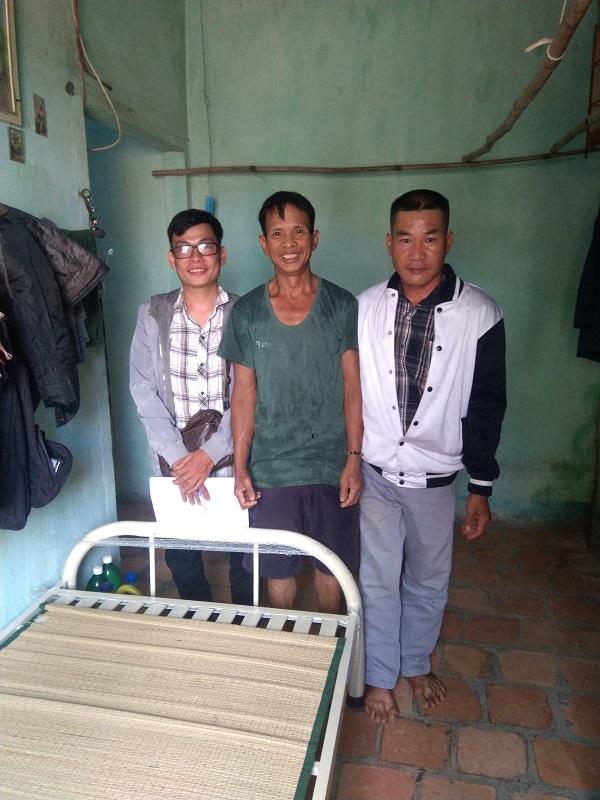
Beneficiaries feel happy when receiving supporting tools from the consulting team:
Mr A Hoi – Duy Tan Ward with a joyful and somewhat hesitant voice: “Sincerely thank to the staff at the People's Committee, people in the group of persons with disabilities, and the project staff for coming and helping the family. I don't know what to say but thank you very much."
Through these activities, the Consulting Team has worked with households of persons with disabilities to discuss and solve problems to help persons with disabilities live more confidently and independently. In the future, the project will have more practical activities to improve the quality of life for local persons with disabilities. Beneficiaries receive seats to ensure better living.
The activity is within the framework of the project "Improving the quality of life of persons with disabilities in provinces heavily sprayed with Agent Orange" (Project "Integration II") by the United States Agency for International Development (USAID) sponsored. The project is implemented by ACDC and the Center for Research and Development of Public Health (CCRD) under the direction of the National Action Center for Toxic Chemicals and Environmental Treatment (NACCET).
Translator: Pham Minh Quang
